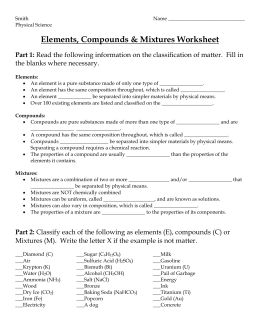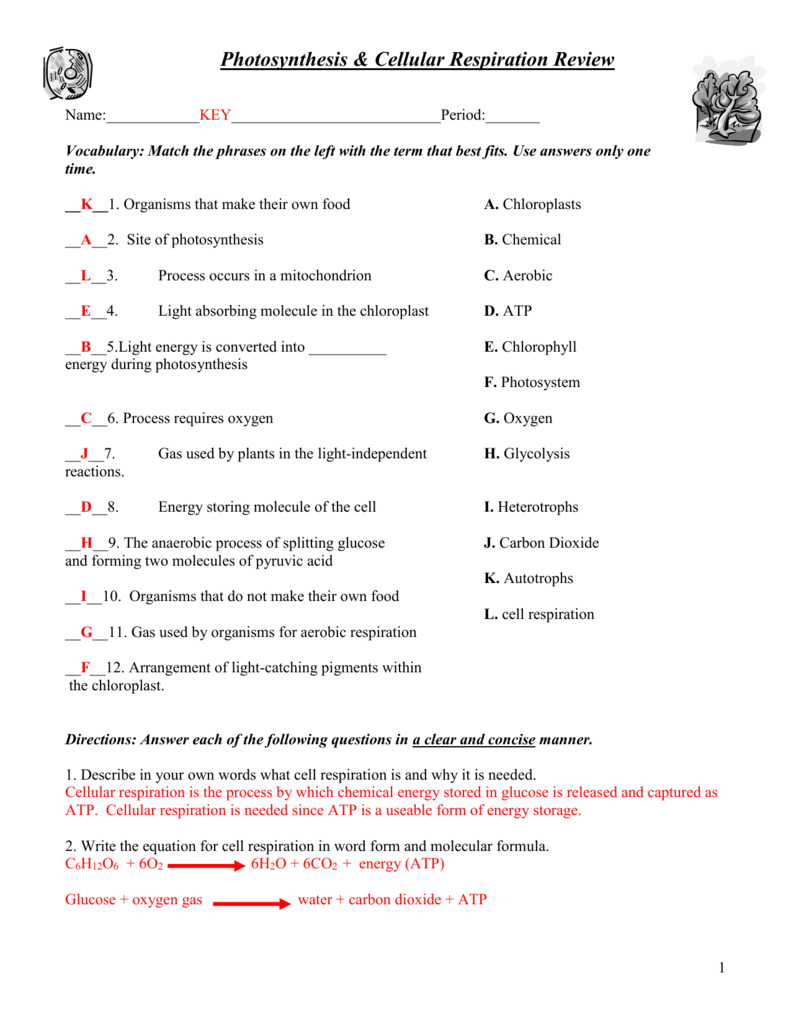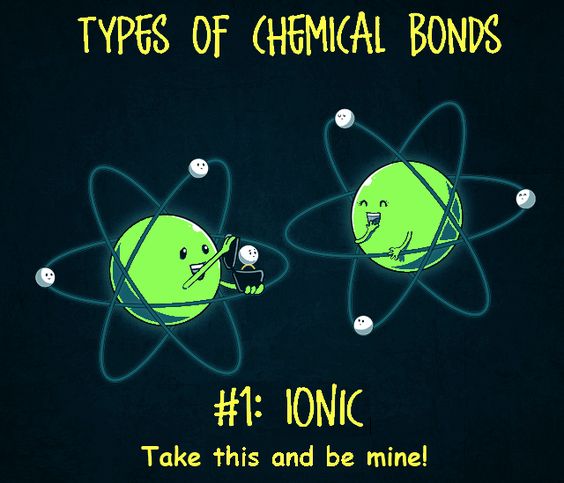Mastering Heat Calculations: Specific Heat Worksheet Solutions
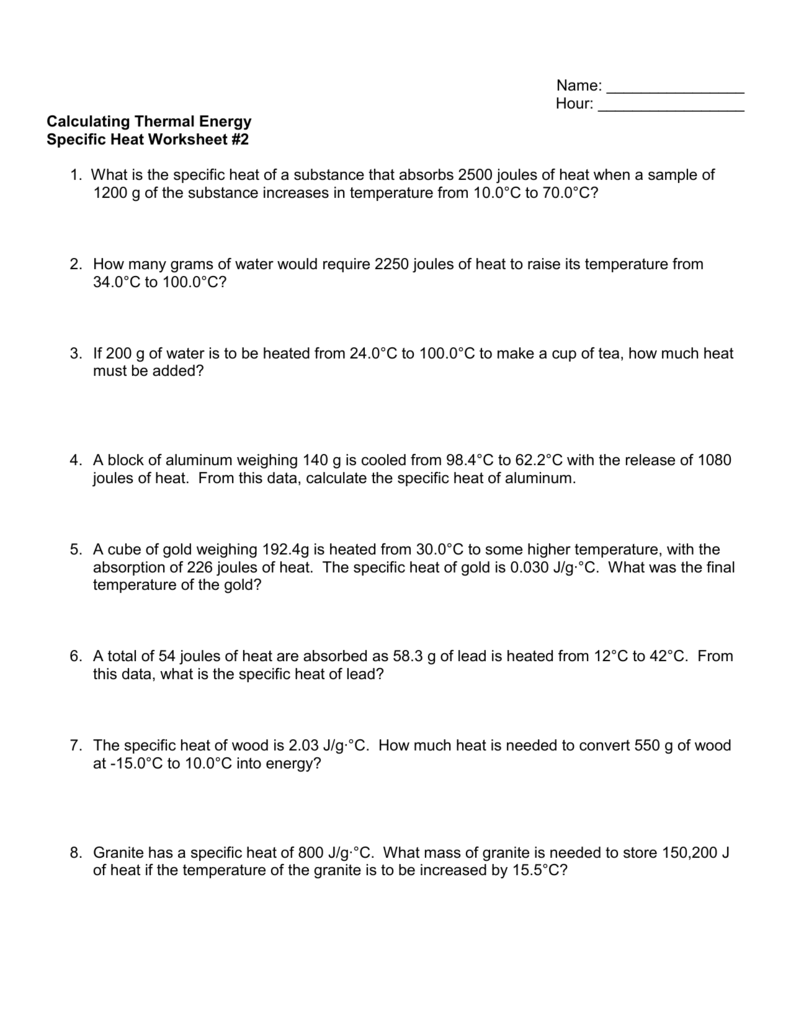
Understanding Heat Calculations
Heat calculations are a fundamental concept in physics and chemistry, allowing us to understand the relationship between heat energy and the temperature of a substance. One of the key concepts in heat calculations is specific heat, which is the amount of heat energy required to raise the temperature of a unit mass of a substance by one degree Celsius. In this blog post, we will explore specific heat and provide solutions to common problems encountered in heat calculations.
What is Specific Heat?
Specific heat is the amount of heat energy required to raise the temperature of a unit mass of a substance by one degree Celsius. It is a measure of the thermal energy storage capacity of a substance. Specific heat is typically denoted by the symbol c and is measured in units of joules per gram per degree Celsius (J/g°C).
Specific Heat Formula
The specific heat formula is:
Q = mcΔT
Where:
- Q is the heat energy transferred (in joules, J)
- m is the mass of the substance (in grams, g)
- c is the specific heat capacity of the substance (in J/g°C)
- ΔT is the change in temperature (in degrees Celsius, °C)
Solving Specific Heat Problems
To solve specific heat problems, we need to be able to rearrange the formula to isolate the unknown variable. Let’s consider a few examples:
Example 1: Find the Specific Heat of a Substance
A 50 g sample of a substance is heated from 20°C to 50°C. If 1200 J of heat energy is transferred, what is the specific heat of the substance?
Solution
We can use the formula Q = mcΔT to solve for the specific heat. Rearranging the formula to isolate c, we get:
c = Q / (mΔT)
Plugging in the values, we get:
c = 1200 J / (50 g x 30°C) = 0.8 J/g°C
Example 2: Find the Heat Energy Transferred
A 100 g sample of water is heated from 25°C to 75°C. If the specific heat of water is 4.184 J/g°C, how much heat energy is transferred?
Solution
We can use the formula Q = mcΔT to solve for the heat energy transferred. Plugging in the values, we get:
Q = 100 g x 4.184 J/g°C x 50°C = 20920 J
Example 3: Find the Change in Temperature
A 200 g sample of a substance is heated with 4000 J of heat energy. If the specific heat of the substance is 2.5 J/g°C, what is the change in temperature?
Solution
We can use the formula Q = mcΔT to solve for the change in temperature. Rearranging the formula to isolate ΔT, we get:
ΔT = Q / (mc)
Plugging in the values, we get:
ΔT = 4000 J / (200 g x 2.5 J/g°C) = 8°C
Notes
💡 Note: Specific heat is an intensive property, meaning it does not depend on the size or amount of the substance.
💡 Note: The specific heat of water is approximately 4.184 J/g°C, which is the highest specific heat capacity of any common substance.
Common Specific Heat Values
Here are some common specific heat values:
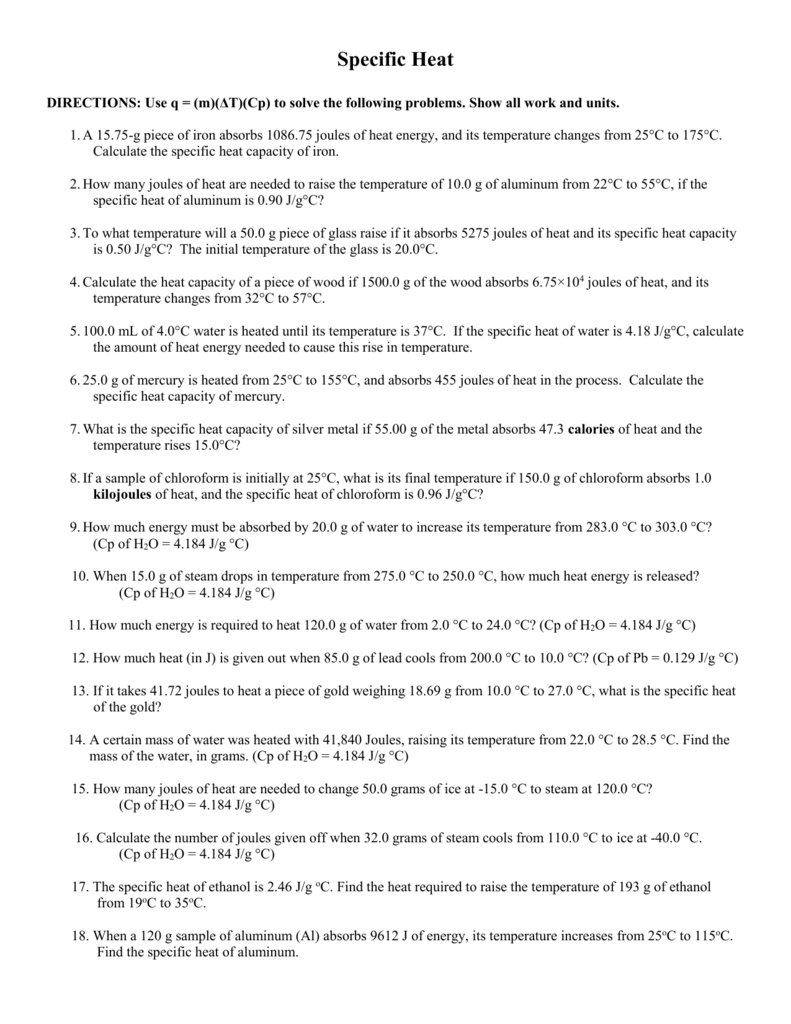
| Substance | Specific Heat (J/g°C) |
|---|---|
| Water | 4.184 |
| Air | 1.005 |
| Copper | 0.385 |
| Aluminum | 0.903 |
| Iron | 0.449 |
Conclusion
Mastering heat calculations requires a strong understanding of specific heat and how to apply it to solve problems. By using the formula Q = mcΔT and rearranging it to isolate the unknown variable, we can solve a wide range of specific heat problems. Remember to always check your units and to use the correct specific heat values for the substance you are working with.
FAQ Section
What is the difference between specific heat and heat capacity?
+Specific heat is the amount of heat energy required to raise the temperature of a unit mass of a substance by one degree Celsius, while heat capacity is the amount of heat energy required to raise the temperature of a substance by one degree Celsius.
How do I determine the specific heat of a substance?
+The specific heat of a substance can be determined experimentally by measuring the heat energy transferred to the substance and the resulting change in temperature.
What is the unit of specific heat?
+The unit of specific heat is joules per gram per degree Celsius (J/g°C).
Related Terms:
- Specific heat Worksheet pdf
- Specific heat capacity Worksheet
- Specific heat Worksheet #1
- Heat Calculations Worksheet answers
- Specific heat calculations
- Specific heat Chem Worksheet 16-1
